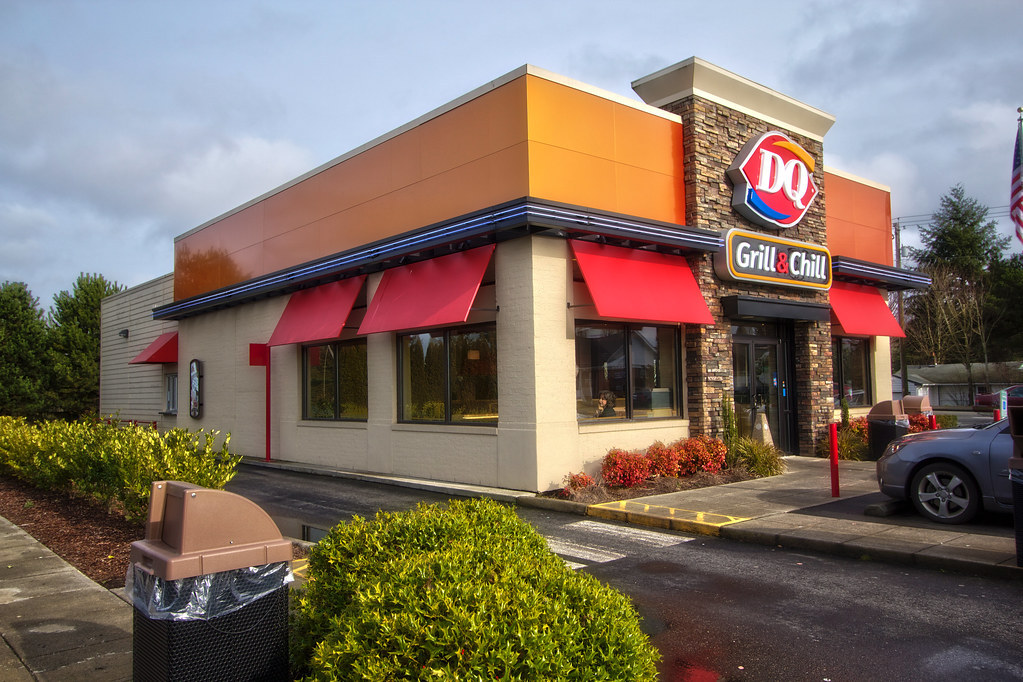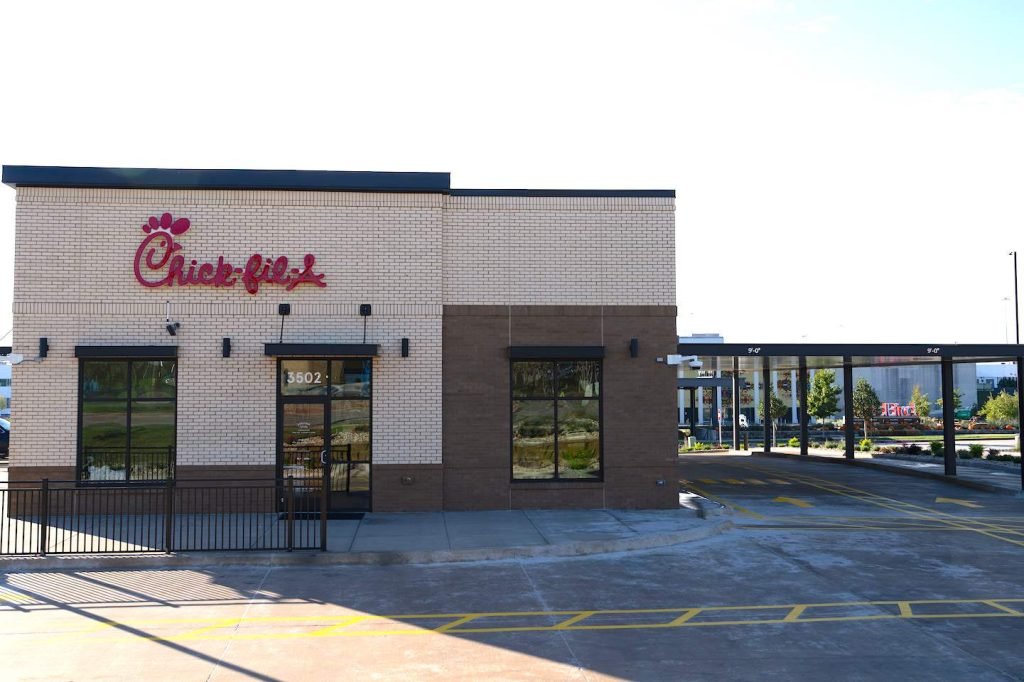Commercial Appraisals for Restaurants
The appraisal of restaurants requires meticulous research, careful analysis, and an understanding of the unique challenges involved in this niche industry. While many may argue that appraising restaurants is a straightforward process, the reality is far more complex. Additionally, determining market demand for a specific type of cuisine or concept can be challenging as consumer preferences change over time. Overall, appraising restaurants requires meticulous research, careful analysis, and an understanding of the unique challenges involved in this niche industry.
Unlike other commercial properties, restaurants have distinct features such as location, reputation, menu offerings, and customer base. These factors can significantly impact the property’s income potential and overall worth. Issues such as corner locations, drive-thru windows, vehicular traffic flow, take out stands and upscale architectural design have dominated the restaurant market. These issues drive value and not all appraisers are equipped to discern characteristics that impact value.
Another challenge is accurately assessing the financial performance of a restaurant due to its complex nature. Restaurants often have fluctuating revenues and expenses, making it crucial to thoroughly analyze historical data and trends to determine an accurate value. Assessing the value of a commercial eatery requires a comprehensive understanding of various factors that influence its worth. By recognizing the importance of accurate restaurant valuations, business owners and investors can make informed decisions to maximize their profitability in this vibrant industry.
When appraising restaurants, there are three main methodologies that can be used. The income approach, the market approach, and the cost approach. The income approach takes into account the potential income generated by the restaurant and calculates its value based on that. The market approach looks at comparable sales of similar restaurants in the area to determine a fair market value. Lastly, the cost approach considers how much it would cost to replace or reproduce the restaurant from scratch. Each methodology has its own strengths and weaknesses, and a thorough analysis of all three is necessary for an objective appraisal.
Key Factors:
- Location, brand recognition, foot traffic, and accessibility are key factors that affect the value of a restaurant.
- Income approach, market approach, and cost approach are commonly used methodologies in restaurant appraisals.
- The income approach focuses on potential income, considers rental income and expenses, and requires accurate financial information.
- The market approach considers comparable sales, location, size, profitability, and reflects current market conditions.
Restaurant valuations offer various benefits such as aiding in negotiations during sales or acquisitions, securing financing by providing lenders with an accurate assessment of risk, and assisting owners in making strategic decisions to enhance profitability. Restaurant appraisals are also crucial tools that enable stakeholders to understand the true worth of these businesses and make well-informed decisions based on objective evaluations.
FAQ to Texas Commercial Appraisals
The most important step to avoiding additional expenses is hiring your Commercial Appraiser directly. DO NOT order from an AMC (appraisal management company) that will add 20-40% on top of the appraiser’s fee. AMC’s often assign the appraisal report to random inexperienced appraisers because they bid lowest. We have competitive appraisal fees because we have eliminated “middlemen” which also reduces report completion times.
Be aware that many of these “management companies” are in other states operated by personnel with NO APPRAISAL EXPERIENCE OR LICENSES. It is important to ask any Appraisal Company about local licensing, qualifications, and experience prior to engaging them for any commercial appraisal assignment. Choose Texas Commercial Appraisals for a competitive fee and local MAI Designated Appraiser!
The MAI designation (Member Appraisal Institute) is highly respected throughout the world as one of the top certifications for commercial appraisers. It requires hundreds of hours of education and training before being granted this title which helps ensure quality services when engaging an appraisal firm or individual for your project. By choosing Texas Commercial Appraisals for your needs, you will gain peace of mind knowing that your property is being handled by experienced professionals who understand both local market conditions as well as national trends.
It is important to ask potential appraisers questions about their qualifications and experience prior to hiring them for a job. It is also wise to ask for references from other clients regarding their level of service and professionalism. By doing this, you can ensure that you are working with an experienced professional who will perform the appraisal accurately and efficiently.
When it comes to the commercial appraisal process in Texas, there are certain expectations for appraisers. They should be familiar with the local market, have a thorough understanding of the property type being appraised and its value, and be willing to communicate their findings clearly. In addition, they should be flexible and willing to work with the client’s needs and timeline.
Appraisers must also adhere to a strict set of ethical standards. This includes providing accurate assessments that are unbiased and free from conflicts of interest. Appraisers must also maintain confidentiality of all information acquired during the appraisal process. Furthermore, they should provide clear written reports that explain their conclusions in detail.
The appraisal process for commercial properties can be a lengthy one, so it’s important to know the industry standard. Depending on the complexity of the property and the appraiser’s schedule, an appraisal should take anywhere from one to four weeks. Furthermore, having all necessary documents ready ahead of time can help speed up the process significantly.
In order to ensure that your appraisal is completed in a timely manner, it’s important to hire an experienced local appraiser who knows the laws governing appraisals in your market area. Working with a qualified professional who understands all aspects of the process is key to getting your appraisal finished quickly and accurately.
The cost of a commercial appraisal can vary depending on the size and complexity of the property being appraised. Generally, the larger and more complex the building or land being appraised, the higher the fee will be. There are other factors that can determine appraisal fees such as intended use of the report, property type, and expedition of services.
On average, a commercial appraisal might range anywhere from $1,500 to many thousands of dollars. Specialized or large-scale assignments can be much more expensive and require several appraisers working simultaneously on multiple reports. You can expect to pay upwards of $10,000 to $50,000 for specialized or large-scale assignments.
Choose TCA for higher quality reports!
Previous Client Reviews!
D. Napier
“I’ve used Texas Commercial Appraisals several times for commercial appraisals in the Houston and Dallas areas. I chose them initially because they are competitively priced with great turn times. I continue to use them because their service is top notch.”
R. Brice
“We recently used Texas Commercial Appraisals to appraise a property we have owned over 15 years. This was by far the best Commercial Appraisal and hands down the best service. They respond quickly to calls or emails and the Appraiser Greg did a thorough appraisal and took the time to discuss details. I definitely would recommend this company to anyone considering a commercial appraisal in Austin or anywhere they service!”
F. Robbins
“I needed an appraisal one of our properties in the Memorial area. Our Appraiser was professional, courteous, thorough, and helpful. The Appraisal Report that was provided following his appraisal was complete and showed significant attention to detail. Seriously, I only wish we had found them sooner...”
G. Matthews
“I was in a serious time crunch and this company was able to schedule the site visit within 48 hours. Our Appraiser was exemplary and the report arrived two weeks later as promised! We exclusively recommend Texas Commercial Appraisals to other investors we know.”
J. Nguyen
"I recently had an apartment complex appraised, the appraiser showed up on time, was professional and conducted a thorough walk through. The report took about 3 weeks but, it was very thorough and spot on! I am very happy with the appraiser and the report.”
J. Martinez
“I was looking to get a Hard-Money loan to renovate and complete additions to my office warehouse. My Lender recommended Texas Commercial Appraisals and thank God they did. The loan funded weeks after the report was delivered, I was impressed!”
T. Washington
“Texas Commercial Appraisals came out on short notice to appraise an investment property I was in the process of purchasing. I found them online and not through my lender. I wanted an independent appraiser since the lender was connected to my broker. They were professional and knowledgeable in all matters. Definitely will use them again and recommend to associates, Thank You!
Arlington ♦ Austin ♦ Beaumont ♦ Corpus Christi ♦ College Station ♦ Dallas
El Paso ♦ Fort Worth ♦ Galveston ♦ Houston ♦ Laredo ♦ San Antonio



